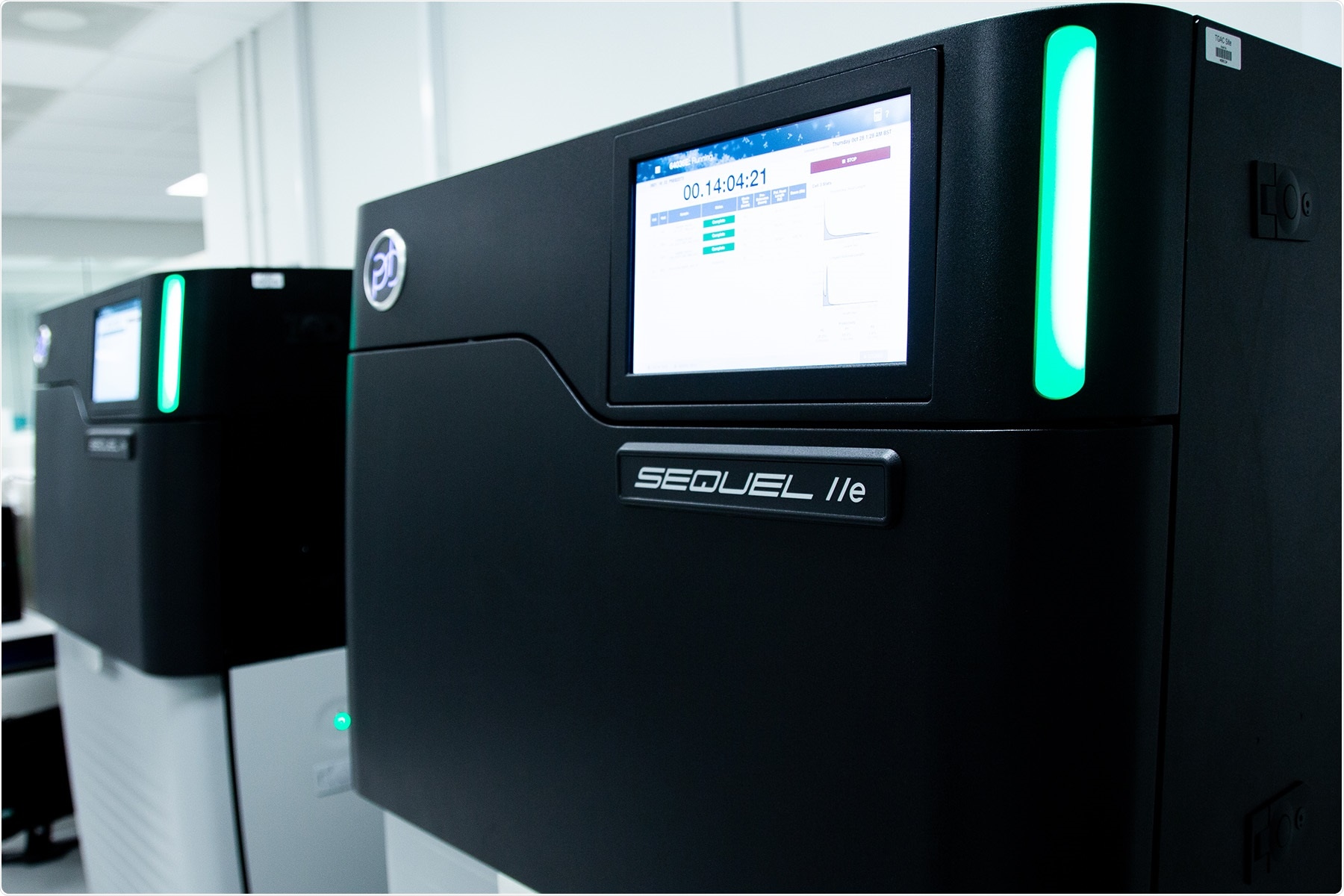The Earlham Institute (EI) has enhanced its ability in high-fidelity long-read sequencing through a pair of the innovative Pacific Biosciences Sequel IIe platforms to assist the Earth BioGenome projects. This offers the UK bioscience community significant technologies for biodiversity genomics.

Sequel IIe platforms at the Earlham Institute. Image Credit: Earlham Institute (EI).
The Earth BioGenome Project (EBP) intends to sequence, catalog, and characterize the genomes of the entire eukaryotic biodiversity on Earth in the next ten years. Worldwide efforts have begun to deploy the technology and infrastructure proficient in quickly providing huge amounts of high-quality genome sequences.
The Sequel IIe platform permits researchers to take genomic analysis to a greater level of precision by generating high-fidelity long reads (HiFi) to address transcriptomes and genomes.
The Sequel IIe platforms allow us to scale up our existing infrastructure in our contribution to BioGenome sequencing. Demand from the UK bioscience community for higher-quality genome references is growing rapidly, with requests to access HiFi sequence data at an all-time high.”
Dr Karim Gharbi, Head, Genomics Pipelines, Earlham Institute
Dr Gharbi further adds, “Feedback from early adopters of the Sequel IIe across the genomics community has been extremely positive with HiFi genomes, outperforming existing resources by at least one order of magnitude. The additional platform will immediately double our genome sequence capability capacity, enabling continued, cost-effective access to HiFi reads for EI researchers and UK bio-scientists.”
The Earlham Institute made tactical investments in genome-enabling technologies—in the past years—opening a new era in biology where first-rate, richly-annotated genome sequences become the norm.
The Earth BioGenome project initiatives are highly collaborative but the technology and infrastructure capable of producing high-quality genomes at scale need to be ensured. The additional HiFi capacity at the Earlham Institute for the analysis of protist genomes strengthens our position in the global initiative as a leader in genome sequencing.”
Neil Hall, Director and Professor, Earlham Institute
These sequencing technologies assist various international and national initiatives with the Earlham Institute as a major research partner.
This includes the Darwin Tree of Life (DTOL) Project, Vertebrate Genomes Project, and European Reference Genome Atlas (ERGA) providing major sequencing data and analyses for a broad range of organisms and laying the basis for many ambitious programs to catalog the biodiversity of single-cell eukaryotes (protists).
Key to this investment was the early adoption of the long, high-quality (HiFi) sequencing platform (Pacific Biosciences Sequel II) in 2019 before the Earlham Institute permanently acquired the instrument with support from BBSRC funding.”
Dr Karim Gharbi, Head, Genomics Pipelines, Earlham Institute
“This technology allowed the Institute’s researchers to secure early success in delivering high-quality genome references for key target species and establish EI as a leading center in BioGenome research,” concludes Dr Gharbi.